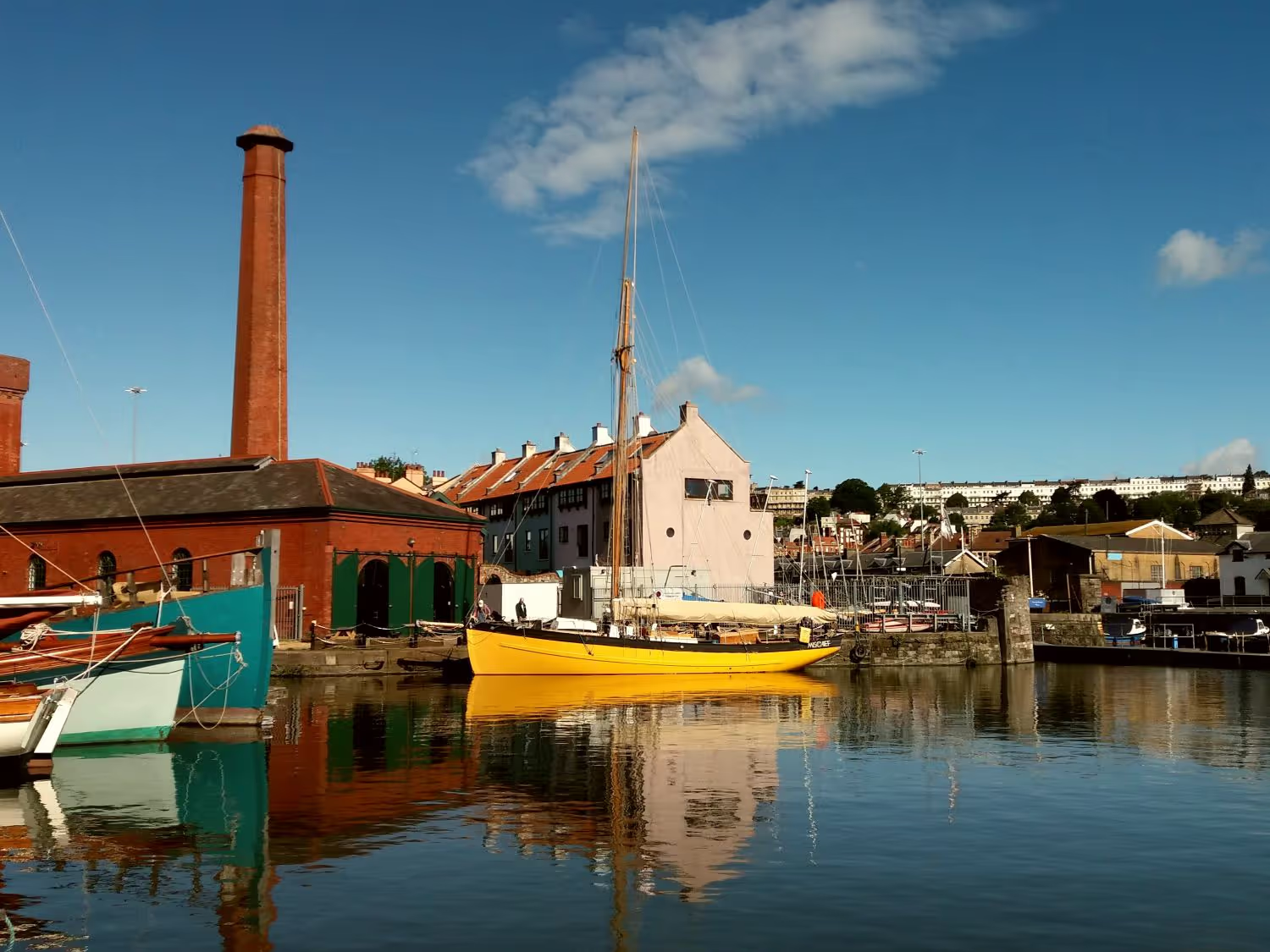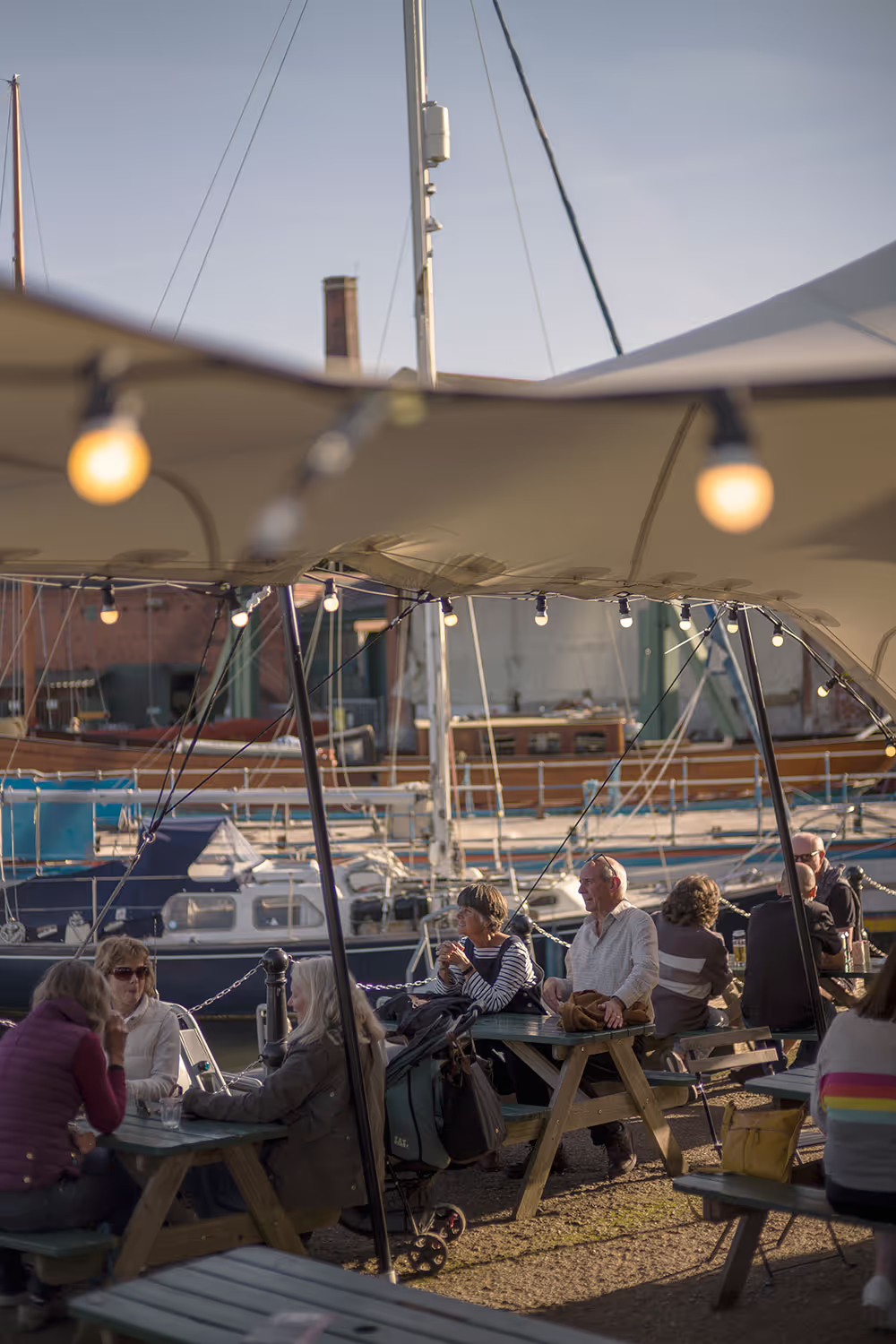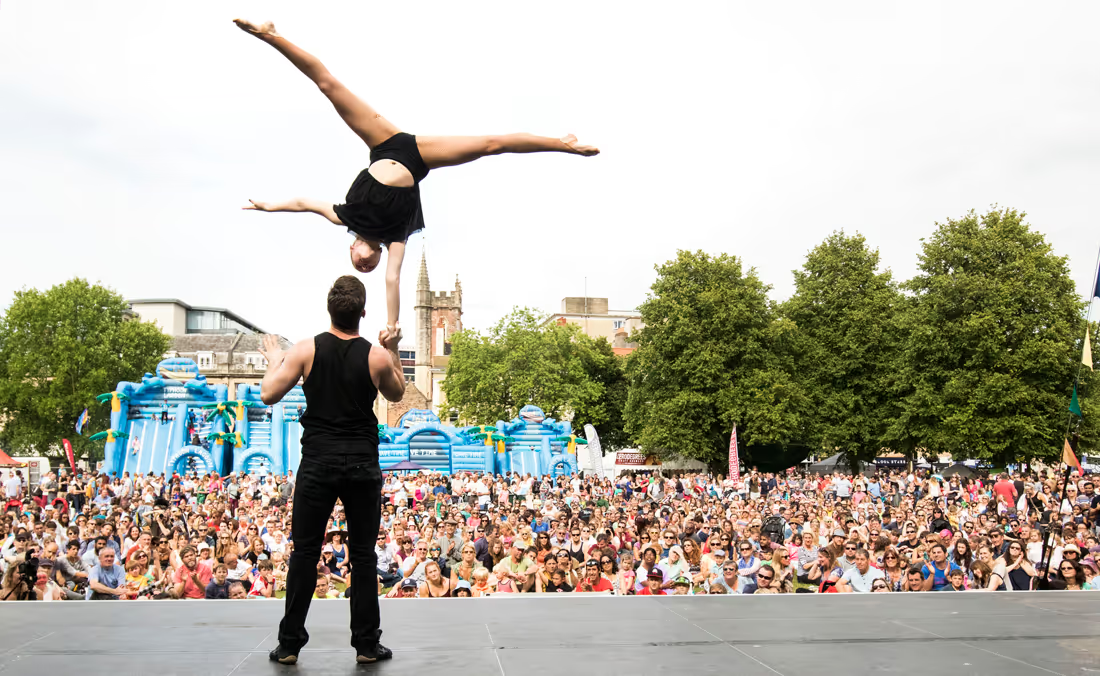
.avif)

HARBOUR FESTIVAL HISTORY
For many people the Bristol Harbour festival is an opportunity to celebrate the heart of our beautiful city, the harbour itself.
In 1802, famous architect William Jessop proposed installing a dam and lock at Hotwells to create the floating harbour and a £530,000 scheme was approved by Parliament. Construction began in May 1804 and today the Harbour still provides the city with a bustling centre filled with activity.
The docks used to be a vital part of Bristol's economy but in the second half of the 20th Century its prominence began to fade, its economic power waned and questions were asked about what to do with the waterway and the land alongside it. Sadly the Port of Bristol Authority decided to close the city centre docks in the 1960s.

Local groups took up the fight to save the docks, and an early weapon in their armoury was the first Harbour Festival in 1971. The event grew in size and importance as the years passed, and even when plans to tamper with the docks were shelved, the festival carried on.
In 1996 the festival hosted the first International Festival of the Sea, bringing in tall ships from international waters. That tradition continues to this day, with two of our visiting vessels in 2018 being from the Netherlands and France.
In 2015, the Harbour Festival helped mark Bristol’s year as European Green Capital with a huge projection onto the Lloyds Building, followed by spectacular fireworks. The festival is now recognised as a green initiative that has transformed how the city deals with waste and recycling.
We hope you enjoy the Bristol Harbour Festival and all it has to offer.
VISION
A showcase of Bristol and its Harbour, through an exciting programme that celebrates the past and offers a fresh perspective on the future.
MISSION
To celebrate, with all the communities of Bristol, the heart and soul of the city in the unique setting of its harbour.
AIMS
- To celebrate Bristol’s maritime history and harbour.
- To showcase Bristol’s talent and heritage.
- To be accessible to Bristol's diverse communities.
- To showcase Bristol as an attractive place to live or visit.
- To boost Bristol’s economy.
- To be economically and environmentally sustainable.
- To promote and support community ownership and participation.
.avif)











